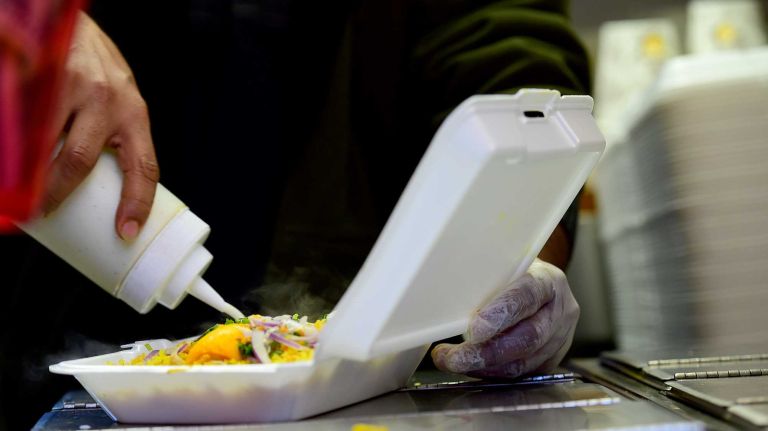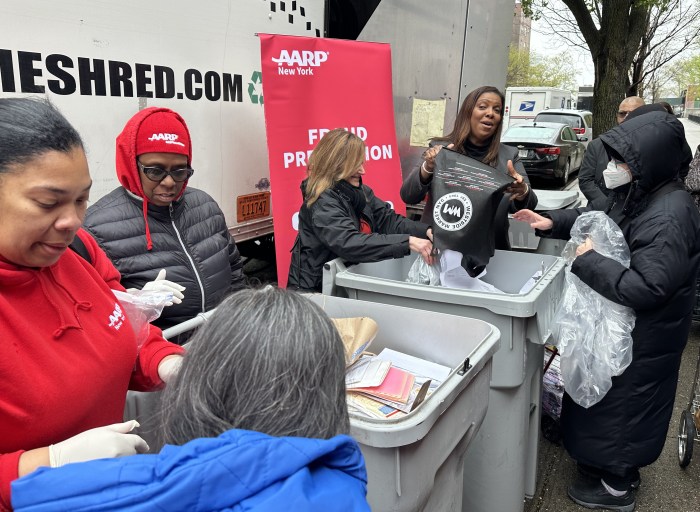
Deli workers and short-order cooks will have to ditch the cheap foam takeout containers for more environmentally friendly and expensive wares starting this summer, the de Blasio administration announced Thursday.
The ban on polystyrene foam clam shells, cups and plates, as well as packing peanuts, had food establishment workers resigned to finding containers made from another kind of material that could put a pinch in the bottom line.
Faisal Ali, an employee at Port Authority Food and Deli on Ninth Avenue, said prices for customers may have to rise if his business switches containers.
“The cheapest one is the foam. If we go for the plastic and other materials, paper let’s say for the coffee cups, it’s extremely, very expensive,” Ali said. “It will cost you 85% higher than the foam prices. That’s a huge gap. It’s not 5 cents, it’s not 10 cents.”
The ban is a Bloomberg-era initiative to rid city restaurants and delis of polystyrene foam. At the end of his term, the City Council passed a law requiring the Sanitation Department to determine whether polystyrene foam could be recycled in a southern Brooklyn processing facility. The city found that the material cannot be recycled, which triggered the ban, set to go into effect in July with a six-month grace period for fines. Small businesses that make less than $500,000 in revenue a year could get a hardship exemption from the Department of Small Business Services.
The de Blasio administration estimated that 30,000 tons of polystyrene waste a year goes to landfills, streets and waterways.
Restaurant industry reps appreciated provisions to get small businesses to make the switch.
“Those that are still using expanded polystyrene containers will have an added expense, but at least they have some time to identify new packaging that keeps food quality and adjust for cost before the law takes effect,” said Andrew Rigie of the New York City Hospitality Association.


















